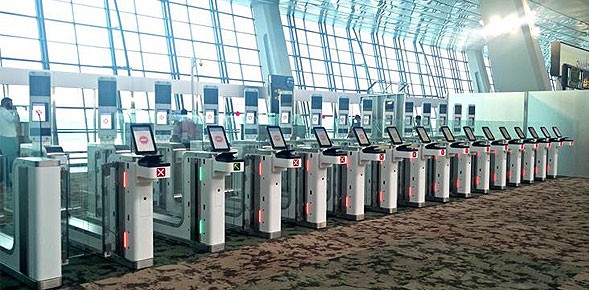If European economic conditions do not show any progress, the Asia-Pacific region, including Indonesia, will feel the impact, no matter how small it is,” declared The Indonesian National Air Carrier Association (INACA) chairman Emirsyah Satar.
According to The Jakarta Post, Indonesian airline companies should be prepared to face the impact of the economic crisis currently hitting some European countries despite the International Air Transport Association (IATA)’s optimistic business outlook for the Asia Pacific airline industry.
The Indonesian National Air Carrier Association (INACA) chairman and the CEO of national flag carrier Garuda Emirsyah Satar said that Indonesia might feel the impact in the coming years.
“If European economic conditions do not show any progress, the Asia-Pacific region, including Indonesia, will feel the impact, no matter how small it is,” declared Mr. Satar on the sidelines of IATA’s 68th Annual General Meeting and World Air Transport Summit on Tuesday.
The impact would be felt significantly by carriers that had a lot of routes connecting cities in Asia Pacific to Europe such as Singapore Airlines and Cathay Pacific, he said. Due to the European economic downturn, Garuda cut their flights from Jakarta to Amsterdam, the Netherlands, via Dubai by almost half in March. They reduced the flights from daily to four times a week as they did not foresee any improvement in Europe.
He said that reducing the flights was also due to soaring fuel prices. Currently the airline’s fuel spending accounts for 38% of Garuda’s spending, up from 20 to 25 % when crude oil prices were US$ 90 per barrel.
“We have started adopting efficiency programs because the rise has significantly increased our operating costs,” he said. Apart from reducing their promotional fares, the company has purchased auxiliary power units (AUP) to help reduce the airline’s fuel purchases.
Instead of using fuel, an aircraft equipped with an AUP can use it to heat itself before take-off. “It helps us to save fuel by 7%,” he added. In addition, he predicts that airline travel in the country will see a 12% growth by the end of this year, a slight decrease from the 16 % growth last year.
Indonesia experienced a 16.78% increase in air passenger numbers throughout 2011, up from 58.39 million in 2010 to 68.19 million. The number of domestic passengers was 60.04 million, a 15.92% increase compared to 2010’s 51.77 million. International passengers reached 8.15 million, a 23.24% increase from 2010’s 6.61 million.
Separately, IATA director general and CEO Tony Tyler said the association had projected that Asia-Pacific airlines would make the largest contribution of $2 billion to the industry’s profits this year.
Tyler said that even with a US$300 million downgrade from the previous outlook, Asia Pacific would benefit from stronger growth in aggregate passenger and cargo traffic this year, as a result of the rebound in demand in the Japanese market following the earthquake and tsunami in 2011. “Regional demand is expected to grow at 3.9 %, above the anticipated 3.3 %, providing some protection for airline profits,” Tyler added. The slowdown in the Chinese and Indian economies is one of the factors in the region’s slow growth environment this year.
Theodore is the Co-Founder and Managing Editor of TravelDailyNews Media Network; his responsibilities include business development and planning for TravelDailyNews long-term opportunities.




![[PR] PR_Ascott and Vimut Hospital_2024](https://www.traveldailynews.asia/wp-content/uploads/2024/04/PR-PR_Ascott-and-Vimut-Hospital_2024-400x265.jpg)




























































